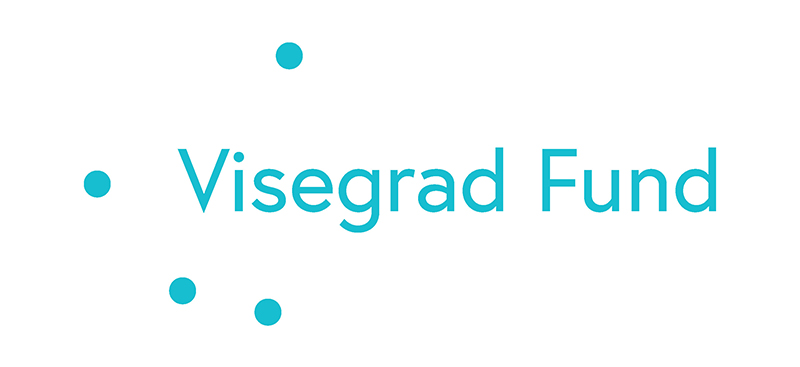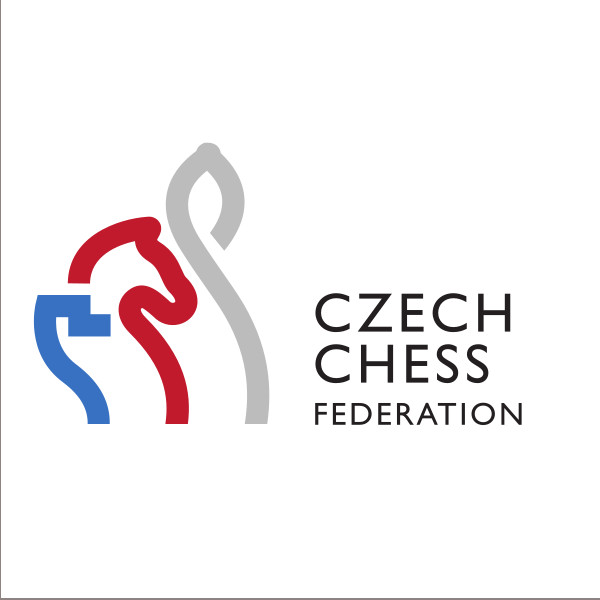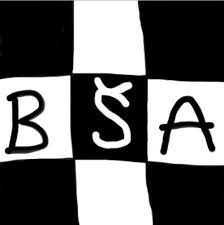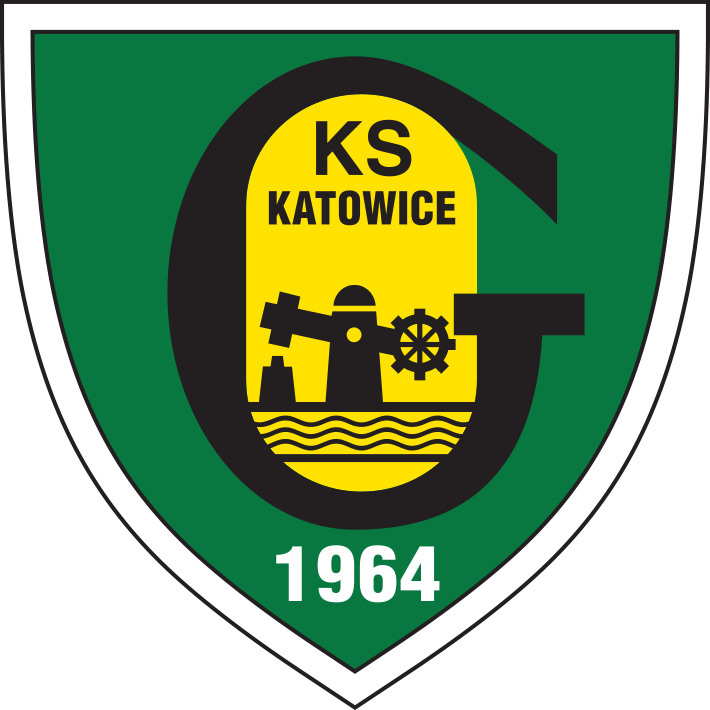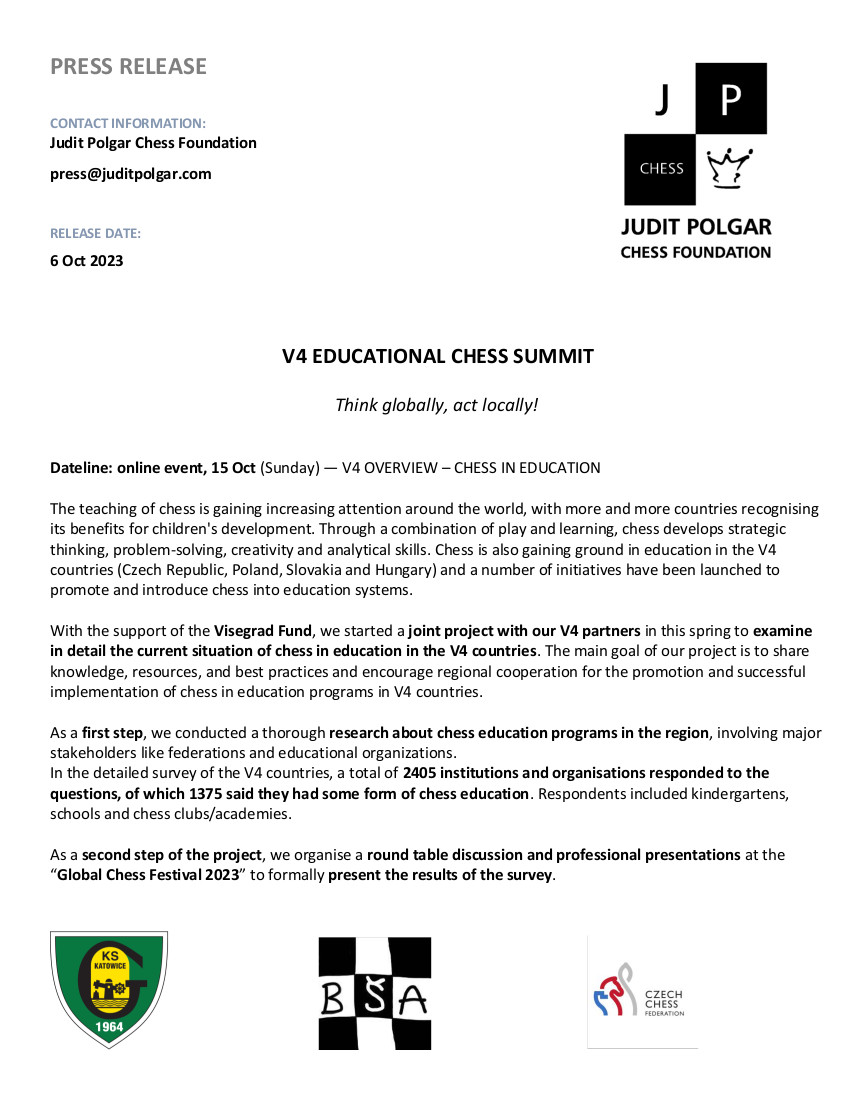GAMBIT PROJECT
Funded by the European Union. Views and opinions expressed are however those of the author(s) only and do not necessarily reflect those of the European Union or the European Education and Culture Executive Agency (EACEA). Neither the European Union nor EACEA can be held responsible for them.
A very interesting project under the name “Gambit” is already in process with chess club from three European countries with the objective to invite, better train, motivate & retain children between the age of 7-12, with special focus on girls & people with fewer opportunities. The idea is to empower chess communities through developing chess clubs’ capacities with training their trainers & developing their training methodologies to improve value, motivation & soft skill development in chess education. This will be implemented by 3 grassroot chess clubs from 3 different EU countries & the Judit Polgár Chess Foundation as a professional trainer organization. During the project there will be 3 knowledge exchange learning sessions (one in each country) & several online knowledge sharing sessions. After a proper needs assessment at clubs to fine-tune & tailor-make the training methodology, training the trainers’ sessions will be held both online & offline.
The GAMBIT project will directly benefit 139 children from the chess clubs & improve +20 trainers’ methodologies.
Main focus of the project aims to:
- engage more children between 7-12 in chess
- increase number of girls involved
- increase the social inclusion of people in less centric, more rural areas
- achieve well trained & prepared chess trainers with effective professional toolkit at hand
- develop capacities of chess clubs with trained trainers & improved methodologies for motivation & retention
- develop soft skills & improved values of children who take part in regular chess trainings, performing better in school & in personal / social situations
- raise awareness & understanding of chess as a sport, its potential in education, health benefits & possibilities to create a better society on a European level.
The project will disseminate its outputs & lessons learned by sustainable tools such as the organizations' websites & social media, a project presentation at Judit Polgar's Global Chess Festival & a final video with all the experience presented in a GAMBIT final event in Spain.
Participation:
- CLUB D ESCACS LLINARS - SPAIN, Coordinator
- GYŐRI SAKK-KÖR, OKTATÁSI KULTURÁLIS ÉS SPORTEGYESÜLET - HUNGARY, Partner
- JUDIT POLGAR CHESS FOUNDATION - HUNGARY, Partner
- SKAKISTIKOS OMILOS LEON KANTIA - GREECE, Partner
Schedule & Trips:
Gambit project started on 1/2/2024 and will be concluded by 31/7/2025.
The project contains 3 trips in the three participant countries on the following dates:
1st trip: 9-12/5/2024 – Greece
2nd trip: September 2024 – Hungary
3rd trip: June/July 2025 – Spain
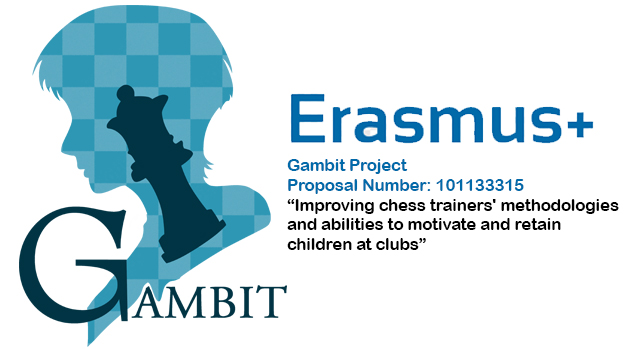

As part of the GAMBIT Erasmus+ project, the Judit Polgar Chess Foundation participated in the first knowledge-sharing and exchange trip in Heraklion, Crete, from May 9 to 12, 2024. We provided training based on the Judit Polgar Method to chess coaches from Greece, Spain, and Hungary, focusing on how to motivate and retain children in chess clubs. Children were also actively involved in the program, enjoying playful chess classes, tournaments, simultaneous exhibitions, and a hand & brain game on a giant chessboard on the beach. It was a fun and enriching experience for everyone! Thanks to Kostas and Leon Kantia team for the hospitality and organization.


V4 Educational Chess Summit
grant support received by the project from the Visegrad Fund
Date: 14th and 15th October 2023
Project description:
The main goal of our project is to share knowledge, resources, and best practices and encourage regional cooperation for the promotion and successful implementation of chess in education programs in V4 countries. To achieve this, we must fully understand the current state of such programs in each country, gather successful initiatives, and create a forum for discussing both the main obstacles to the introduction of chess in schools as well as strategies and tools to alleviate them. The partners, as leaders of the mission of chess education in their respective countries, are uniquely situated to initiate such a discussion, considering they are in possession of both the knowledge and network to identify the main issues.
As a first step, we would conduct a thorough research about chess education programs in the region, involving major stakeholders like federations and educational organizations. The research will provide us crucial data about the most important issues and success factors for different initiatives. At the V4 Educational Chess Summit, participants (invited experts and audience) will discuss these issues as well as the latest innovations, chess education models, and national best practices.
List of partners:
- Czech Chess Federation // www.chess.cz
- Bratislava chess academy “BCA” // www.sachovaakademia.sk
- Wasko Hetman GKS Katowice Chess Club // hetmankatowice.pl
Judit Polgar Chess Foundation
Project coordinator: Ági Füleky, This email address is being protected from spambots. You need JavaScript enabled to view it.
The project is co-financed by the Governments of Czechia, Hungary, Poland
and Slovakia through Visegrad Grants from International Visegrad Fund. The mission of the fund is
to advance ideas for sustainable regional cooperation in Central Europe.
Date: 23rd February 2023
The first online meeting of the 4 partners took place in February. The Judit Polgar Chess Foundation presented the project and outlined the implementation process. The first part of the project is to create a detailed research and analysis of the current state of chess in education in the V4 countries. We will focus on 2 main parts: Gather quantitative data about chess education programs in each country (e.g. number of preschools/schools/academies offering such programs, number of certified teachers, etc.) by creating and sending out a survey to stakeholders and conducting desk research, and research and analyze the characteristics of these programs (teaching methods, tools, funding, challenges according to stakeholders, etc.).
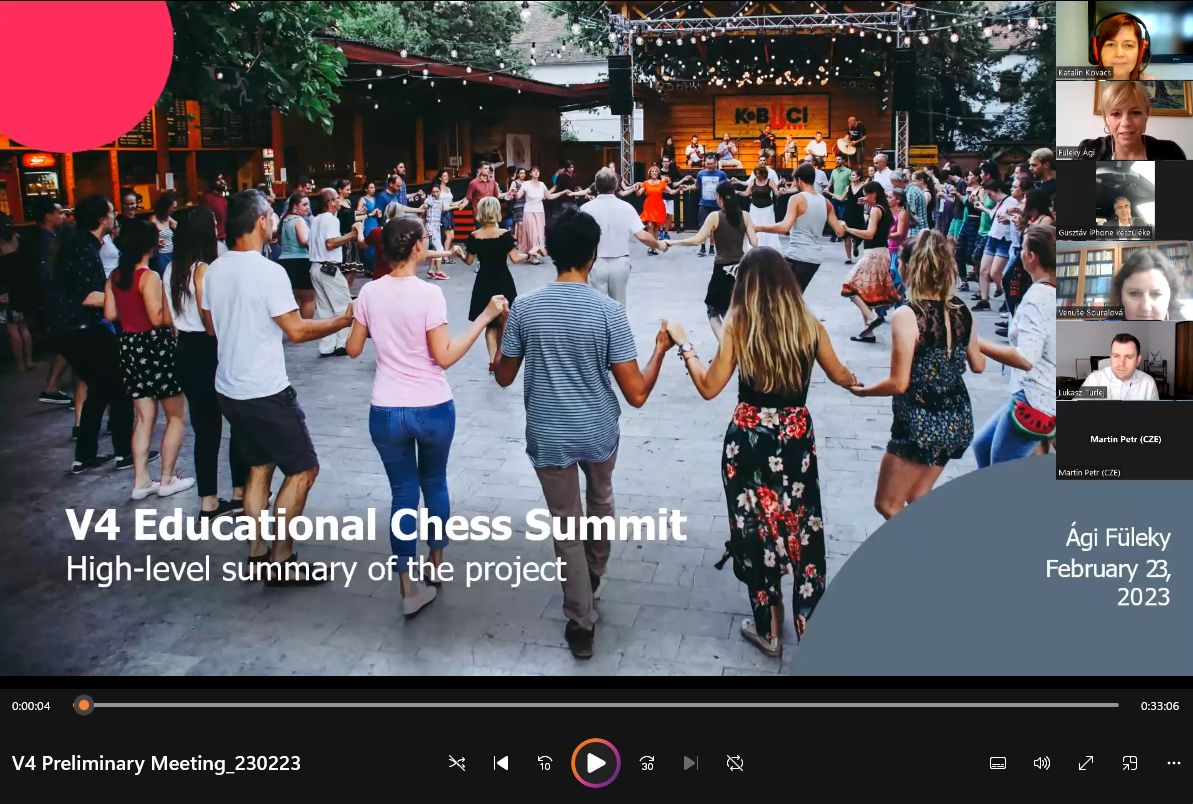
Date: 5th May 2023
The questions of the survey for kindergartens, schools, chess clubs, chess academies and leisure centres have been assembled, reviewed by all partners, and sent out to stakeholders in all four Visegrad countries. The deadline for submitting the questionnaires is the end of May.

15th July 2023
Detailed research and analysis by JPCF and partners on the current state of chess in education in the V4 countries
In the detailed survey of the V4 countries, a total of 2405 institutions and organisations responded to the questions, of which 1375 said they had some form of chess education. Respondents included kindergartens, schools and chess clubs/academies.
Key conclusions: Chess education and development have numerous positive effects on individuals and society, enhancing cognitive skills, problem-solving abilities, and social interactions. To make chess more motivating and challenging for children, opportunities such as online partner schools, promoting values, easier access to chess, school chess programs, afternoon workshops, and chess clubs and tournaments can be explored. Financial resources are needed for widespread adoption, including training teachers, purchasing equipment, and supporting competitions. Challenges include a lack of coaches, qualified teachers, and funds. A cohesive team, comprehensive educational materials, and prioritizing online chess are essential for success.
Read the full report or the summary.
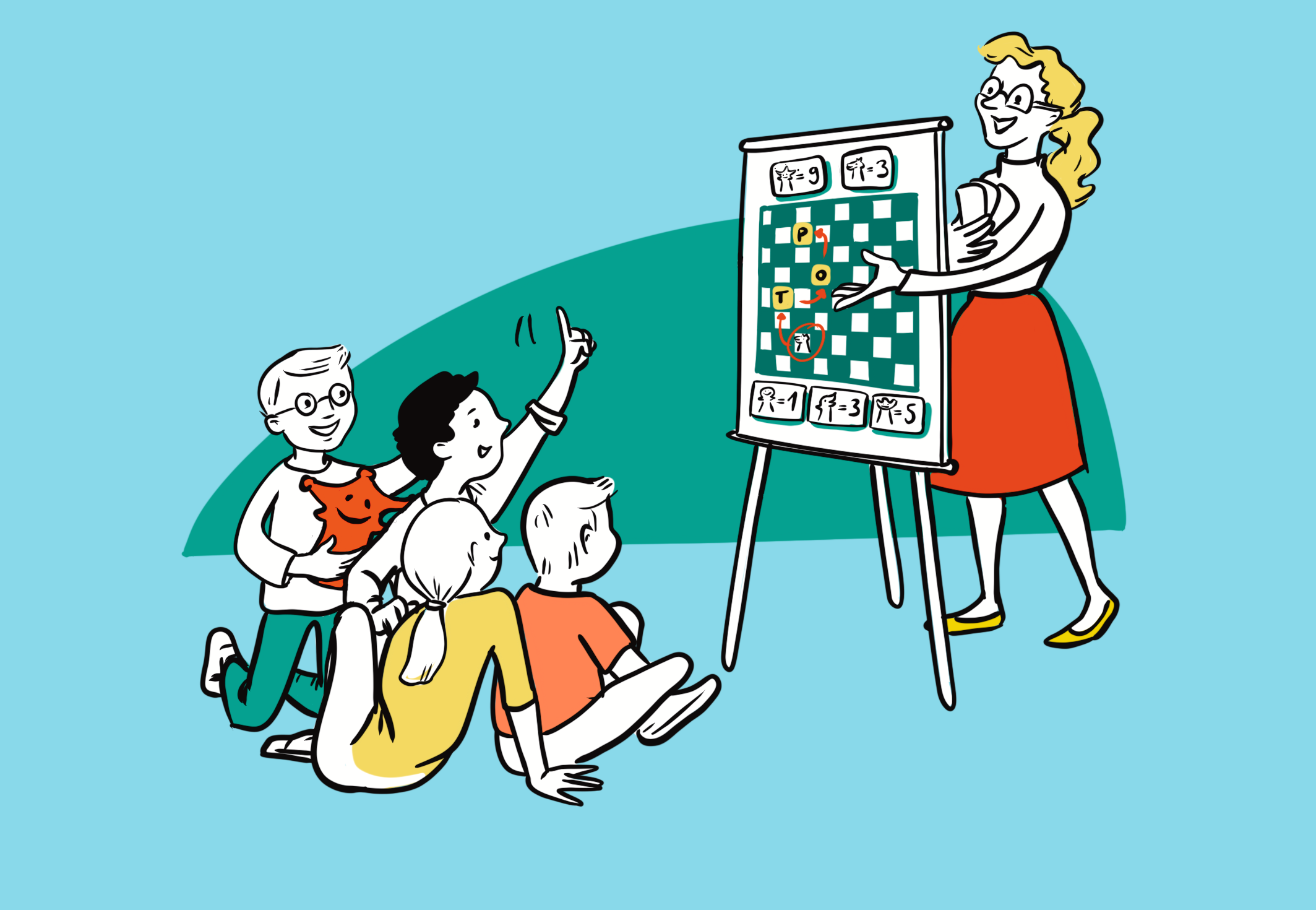
25th September 2023
V4 OVERVIEW – CHESS IN EDUCATION - on 15th October
Think globally, act locally! As part of Judit Polgar's Global Chess Festival, the V4 Overview is a standalone segment of the "Educational Chess Summit 2023" to the general audience. The main objective of the English-language roundtable discussion is to share knowledge, resources, and best practices, stimulate regional cooperation, promote chess, and ensure the successful implementation of chess-related programs in the education systems of the V4 countries. Topics include the most successful educational methods employed in each country, ideas, tools, curriculum materials, and possibilities for adapting them in other countries, challenges faced in jointly shared programs – financing, training, promotion – and opportunities for future collaboration.
PRESENTERS & PARTICIPANTS
Mgr. Michal Vrba (Slovakia)
Founder of Bratislava Chess Academy with the glamorous goal of promoting the game among people outside of the chess community. He has significant experience in the global marketing industry. Presentation with best practices.
Dipl Ing. Martin Hunčár (Slovakia)
Chess trainer of Bratislava Chess Academy who uses creative ways to impress children, including the puppet Šachuľko Matový. Organizer of large chess events (Bratislava chess summer) and other activities e.g. Bike and chess and Run and chess.
Mgr. Venuše Souralová (Czech Republic)
Experienced teacher, Chess in Schools project manager at the Czech Chess Federation since 2018, student of the MPA Sports Diplomacy program at Prague University of Economics and Business.
Mgr. Lenka Kůsová (Czech Republic)
Head of the Women´s Chess Commission in the Czech Republic, member of the Communication and Marketing Commission of the Czech Chess Federation, chess coordinator for schools, chess event organizer.
Lukasz Turlej (Poland)
Secretary General of FIDE, President of the Wasko Hetman GKS Katowice, organizer of the European and World Chess Championships, and the biggest Polish chess Festivals. Promoter of the implementation of chess as a tool in education and in social projects.
Marlena Chlost (Poland)
Chess player, businesswoman, and educator. Founder and CEO of Empie Solutions and ChessGrow - a free platform for learning and chess training, helping develop the skills of chess players worldwide. President of the top-tier club Akademia Szachowa Gliwice, founder of an educational center for children and youth.
Judit Polgár (Hungary)
Grandmaster, Chess Olympic Champion, Educational Ambassador, edu-tainer, founder of the Global Chess Festival.
Andrea Farkas (Hungary)
Educational coordinator. Developer, later project manager of the Chess Playground Program at the Judit Polgar Chess Foundation, technical manager of the EFOP322 project at the Vice Presidency for Content Development and Textbook Publishing of the Education Office.
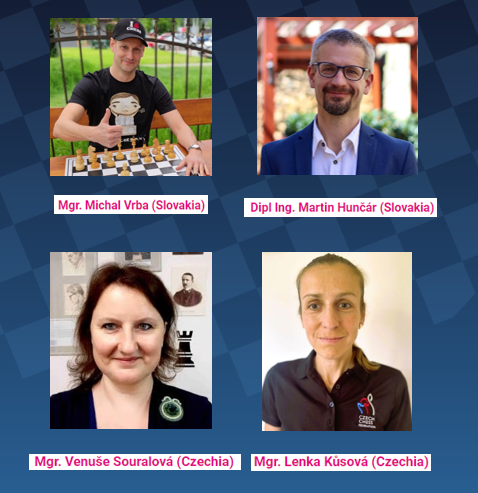
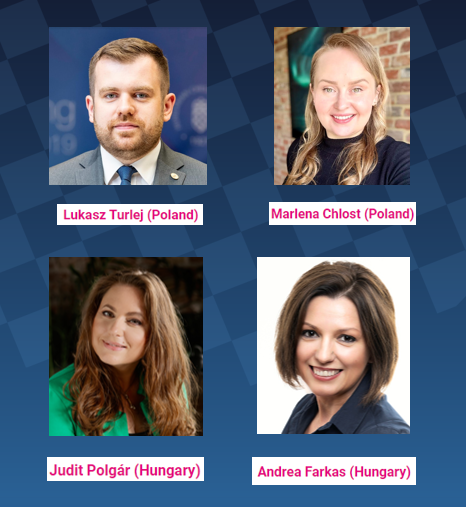
5th October 2023
PRESS RELEASE

